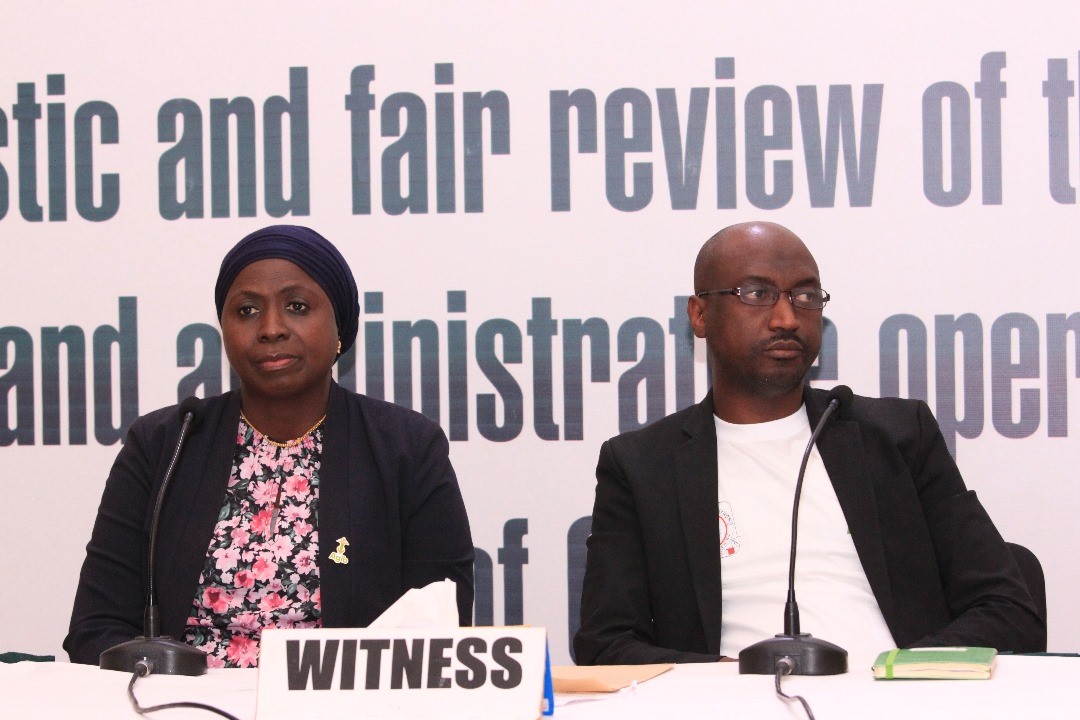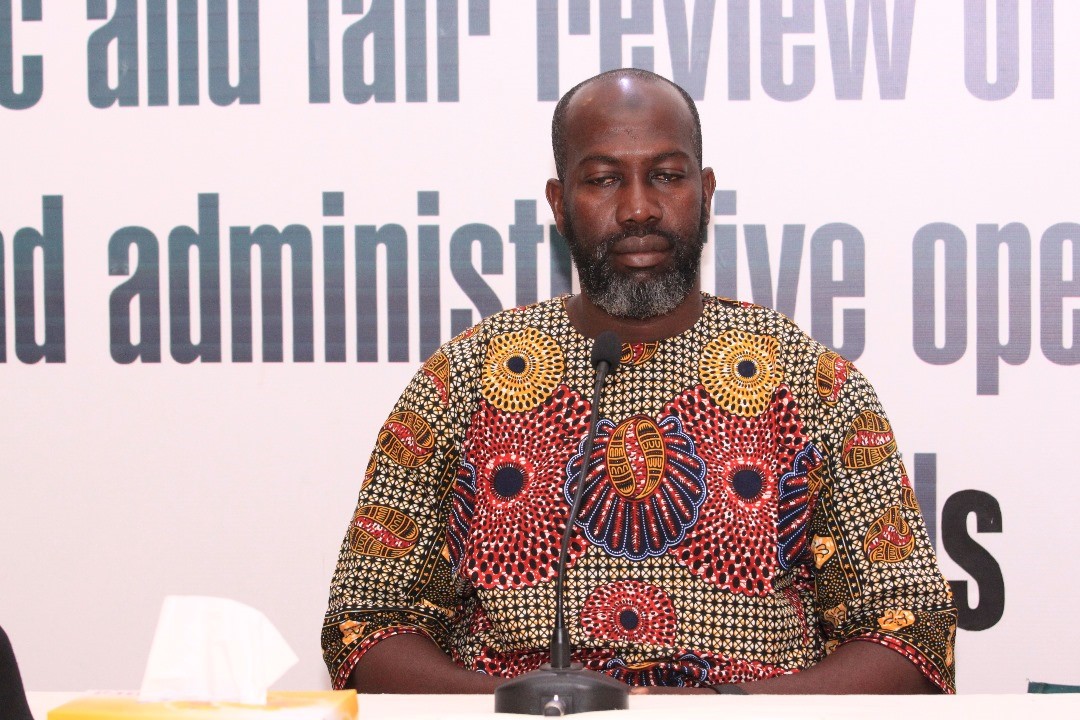By: Fatou krubally
The Managing Director of Arab Gambia Islamic Bank (AGIB), Isatou Jawara, and the bank’s Operations Manager, Ousainou Jallow, came under intense scrutiny on Thursday, 12th February 2025 as they appeared before the Local Government Commission of Inquiry (LGCI) over the bank’s role in financing a controversial truck procurement project under the Mbalit Initiative.
The LGCI revealed that AGIB, in partnership with Espace Motors (also known as Quantum), facilitated the purchase of trucks amounting to D122 million without conducting an independent financial assessment of its business partner. The bank’s profit margin from the deal stood at D13 million, while Espace Motors was set to receive D8 million.
However, under sharp questioning from Lead Counsel Patrick Gomez, it became evident that AGIB Bank’s management credit committee had not reviewed or approved the financing arrangement. Instead, the bank relied on its longstanding business relationship with Espace Motors.
“The project had no specific collateral,” Jawara admitted during her testimony. She insisted that the financing was based on the trust AGIB Bank had in its business partner, adding that Espace Motors had existing collateral with the bank.
Operations Manager Jallow echoed this position, stating that AGIB Bank held a memorandum of deposit with Quantum covering all transactions. However, he conceded that the expected funds from the project failed to materialize, forcing AGIB Bank to seek payment from the Kanifing Municipal Council (KMC), which had originally been expected to generate revenue to service the loan.
“If the funds were coming as expected, it would not have been necessary to follow the KMC,” Jallow admitted, while acknowledging that AGIB Bank miscalculated the financial viability of the project.
LGCI also heard conflicting accounts regarding an earlier request by KMC for a credit facility. Former AGIB Bank Relationship Manager, Samba Faye had previously testified that the request was denied, but Jallow claimed he had no recollection of such a discussion at the management level.
Gomez was unsparing in his critique, challenging the AGIB Bank officials on their failure to conduct a risk assessment before disbursing such a large sum.
“Was it sufficient to rely on an MoU to finance the purchase of trucks without collateral, without credit committee approval, and without a proper risk assessment?” Gomez asked pointedly.
With AGIB Bank unable to provide clear answers, Gomez concluded that the bank had failed in its due diligence.
“From the onset, the primary source of repayment funds from the wards failed to generate the necessary revenue,” Gomez noted, emphasizing that AGIB Bank’s decision to finance the deal without adequate safeguards left the project financially vulnerable from the start.
As the inquiry continues, AGIB Bank’s handling of the financing deal and its broader approach to risk management remains under serious scrutiny.





